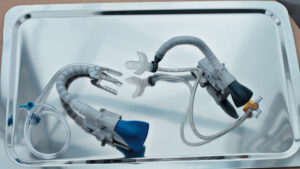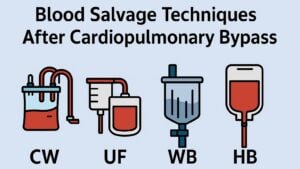Introduction: Despite promising results regarding using long-acting cardioplegia in the adult population, little data exists specifically for operations requiring prolonged aortic cross-clamp needing additional doses. In this pilot study, we evaluated the outcomes of patients undergoing surgery with prolonged cross-clamp time based on four different redosing compositions.
Methods: During the period from January 2019 until June 2022, 288 patients undergoing cardiac surgery with an expected cross-clamp time over 60 min were prospectively randomized regarding the type of the cardioplegia used: Group 1 (N = 150)- single-dose del Nido antegrade cardioplegia and Group 2 (N = 138)- single-dose Histidine-Tryptophane-Ketoglutarate (HTK) antegrade cardioplegia. In patients with ischemic time over 60 min, needing a redosing were further analyzed separately in four subgroups: (A) Cold whole blood (CWB) (4:1) (N = 95); (A1: DN-CWB; A2: HTK-CWB) and (B) St Thomas Solution (N = 92) (B1: DN-St Thomas; B2: HTK-St Thomas. Control groups were C1 (DN redosed by DN) and C2 (HTK by HTK).
Results: Troponin levels in A1 and B1 groups were significantly lower than in DN-control. Respiratory support time and incidence of atrial fibrillation were significantly lower in Group A1 versus DN-control.
Conclusions: Long-acting cardioplegic techniques are becoming widely utilized in the adult population, with minimal data on redosing methods/compositions for prolonged cases. Due to the small patient population, further investigation is needed to delineate optimal redosing methods, but this report brings to attention the initial success of multiple strategies.
Keywords: cardioplegia; myocardial protection.







